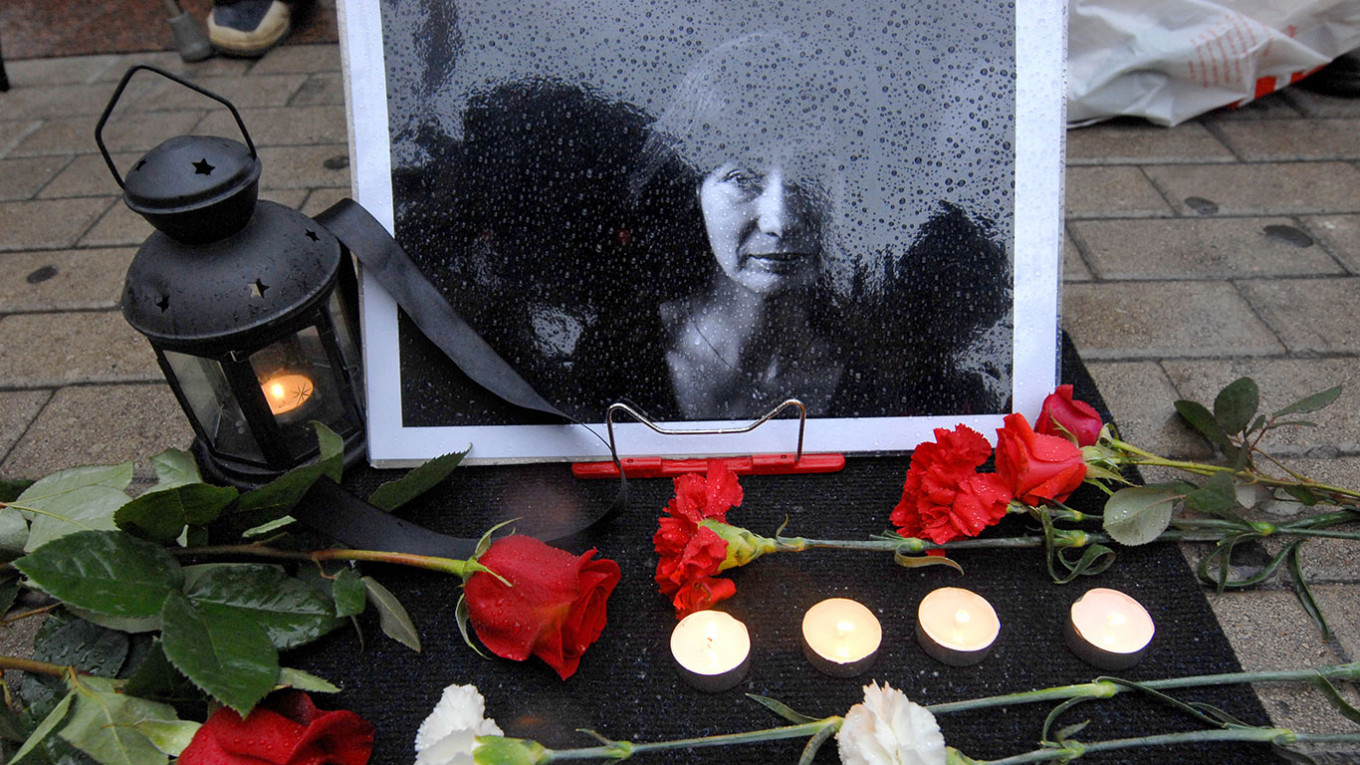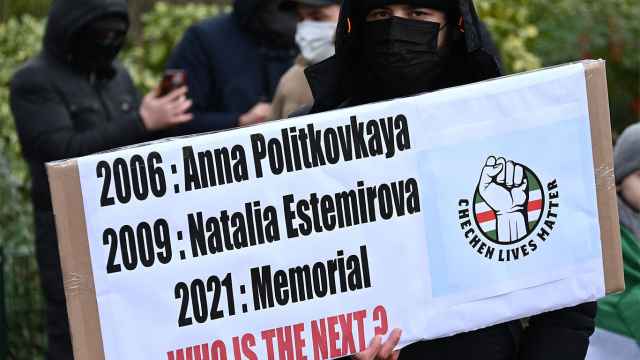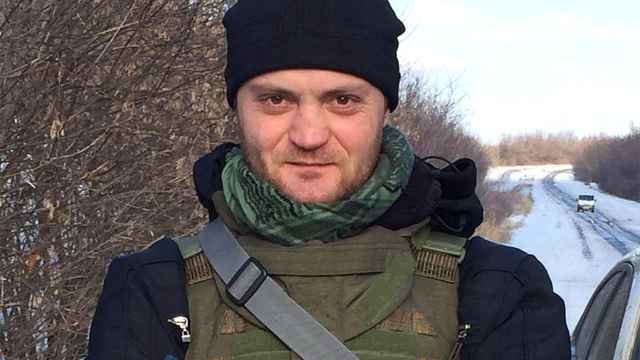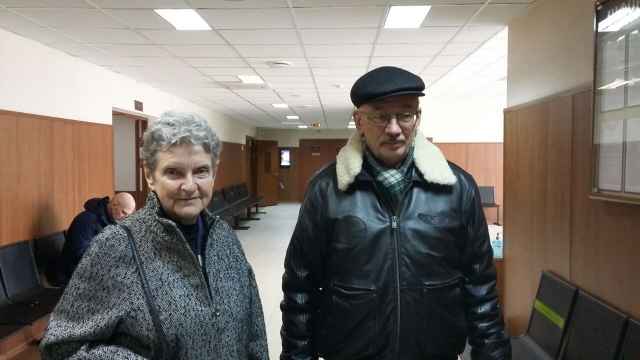Europe’s top human rights court said it has found no evidence of Russian state involvement in the 2009 murder of human rights activist Natalia Estemirova but ruled that authorities failed to properly investigate the case.
The ruling was met with criticism from Estemirova’s daughter, Lana, who called the decision “upsetting and infuriating” and pledged to continue pursuing the case.
Estemirova, one of Russia’s most prominent human rights advocates and journalists, was abducted on her way to work in Grozny, the capital of Russia’s republic of Chechnya, on July 15, 2009. Her body was found in a wooded area in the neighboring republic of Ingushetia later that day with bullet wounds in her head and chest.
In its long-awaited judgment published Tuesday, the European Court of Human Rights (ECHR) said there were “parallels” between Estemirova’s murder and the high-profile assassination of another human rights advocate Anna Politkovskaya, who also reported heavily on alleged human rights abuses in Chechnya.
In a unanimous decision, the seven-judge panel said it “was unable to accept the applicant’s argument that this was a prima facie case of abduction by state agents” — dismissing the argument put forward by Estemirova’s lawyers that the Russian government was implicated in her murder.
Estemirova had worked on hundreds of high-profile, highly sensitive human rights cases, including alleged kidnappings, torture and murder by Russian government forces during military campaigns in Chechnya which marred the 1990s and early 2000s.
Her murder shocked Russian civil society and triggered an international outcry, with world leaders including German Chancellor Angela Merkel and then-UN Secretary General Ban Ki Moon demanding her killers be brought to justice.
Russian prosecutors have named the likely murderer as insurgent Alkhazur Bashayev, saying he likely wanted to take revenge for accusations levied against him by Estemirova. They ordered his arrest but his whereabouts are unknown. The case is still open and “appears to be ongoing,” the ECHR said Tuesday.
'Cover-up'
Estemirova’s former colleagues from the independent Novaya Gazeta newspaper and Memorial human rights group have publicly criticized that version of events, alleged a cover-up of the true culprits and said Chechnya’s strongman leader Ramzan Kadyrov was involved.
Prior to the murder, Estemirova and the Memorial human rights group had regularly received threats from Chechen authorities in an attempt to shut down their work, according to Tanya Lokshina, head of Human Rights Watch in Moscow and Estemirova's former friend and colleague.
The case was brought to the ECHR by Natalia’s sister, Svetlana Estemirova.
“Much of [the plaintiff's] evidence was hearsay, and there had been no signs of the involvement of state agents,” the court's ruling said. For instance, “the abduction had not been a part of a special operation, no military vehicles had been used, it had not been perpetrated in the presence of police officers, and so forth.”
“This is not the outcome I was expecting,” Natalia's daughter, Lana Estemirova, told The Moscow Times after the ruling was published.
“It’s quite a dissatisfactory judgement for the family, for me, for my aunt and a for lot of my mum’s friends. It’s upsetting because I struggle to understand how they concluded that state agents weren’t responsible for the abduction and murder ... Everything points to the fact that there’s been a cover-up. Obviously this is quite an infuriating outcome for me and everybody who knew my mum.”
She said she will discuss with lawyers how to take the case forward.
Failure to investigate
The ECHR did rule that Russia had violated its obligations to conduct a full and thorough investigation of the murder and ordered Russia to pay Svetlana Estemirova 20,000 euros ($23,650) in compensation.
It found that “certain contradictions in the expert evidence remained unsolved,” and said it “had doubts as to whether the investigations had made a genuine attempt” to identify all the culprits implicated in her murder.
The Strasbourg-based body also said the Russian government “undermined its ability to assess the quality of the investigation” by refusing to hand over its full case file or investigatory documents to the court.
Russia is a signatory to the European Convention on Human Rights and subject to ECHR rulings. As part of a package of controversial amendments to the Russian constitution passed last year, the Kremlin moved to subjugate international law and agreements to Russian law.
A Message from The Moscow Times:
Dear readers,
We are facing unprecedented challenges. Russia's Prosecutor General's Office has designated The Moscow Times as an "undesirable" organization, criminalizing our work and putting our staff at risk of prosecution. This follows our earlier unjust labeling as a "foreign agent."
These actions are direct attempts to silence independent journalism in Russia. The authorities claim our work "discredits the decisions of the Russian leadership." We see things differently: we strive to provide accurate, unbiased reporting on Russia.
We, the journalists of The Moscow Times, refuse to be silenced. But to continue our work, we need your help.
Your support, no matter how small, makes a world of difference. If you can, please support us monthly starting from just $2. It's quick to set up, and every contribution makes a significant impact.
By supporting The Moscow Times, you're defending open, independent journalism in the face of repression. Thank you for standing with us.
Remind me later.






